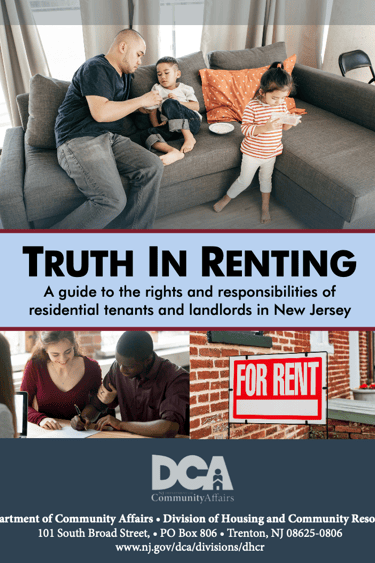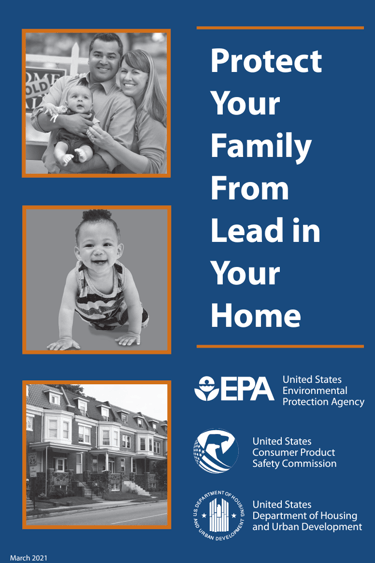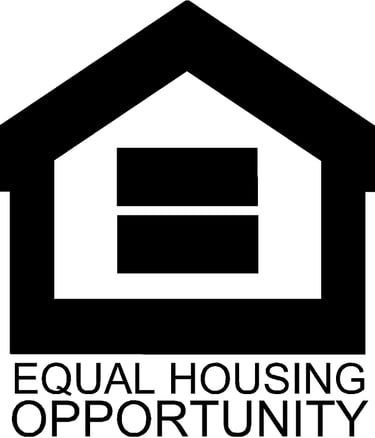Here, you'll find essential information to help you avoid rental scams while searching for a place in New Jersey (and beyond). This page also offers valuable resources, including information on how working with a REALTOR in New Jersey can protect you and make the process smoother. (Hint: Hiring a professional is highly recommended—and you’ll see why as you read on!)
Additionally, at the bottom of this page you have access to helpful calculators I’ve created to:
Determine how much you can afford.
Check if you meet the landlord’s income criteria.
Calculate how much money you’ll need for lease signing.
I also added links at the bottom so you can get your Free Credit Report, and a get your free Credit Score.
Explore the resources, stay informed, and feel confident in your rental journey!
Welcome to the Renter's Resource Hub
(and How to Avoid Scams When Looking for a Rental)
Common Rental Scams to Watch Out For:
Fake Listings: Scammers post enticing rental ads using stolen photos or fake addresses. They’ll ask for deposits or application fees upfront without ever showing you the property. These ads can appear anywhere, Zillow, Apartments.com, CraigsList, FaceBook, etc.
Pressure to Act Quickly: Fraudsters often create urgency by claiming there are multiple applicants and demanding immediate payment to secure the rental.
Suspicious Payment Methods: If someone asks you to pay in cash, through gift cards, or via untraceable platforms like cryptocurrency, it’s a red flag. Even Venmo, PayPal, CashApp and similar payment apps could be sketchy.
No In-Person Viewings: Be very cautious if the “landlord” refuses to meet you or let you view the property in person. Even if they offer a 'virtual' viewing. Who is to say the apartment they are showing you is really for rent? You need to see the apartment in person.
How a REALTOR® Protects You
Working with a real estate agent is not only convenient but also an essential safeguard against rental scams. Here’s how your agent ensures a smooth and secure rental process:
Verified Listings: Agents work with listings that are vetted by other licensed professionals. They confirm legitimacy by cross-checking property details with public records, verifying the landlord’s identity, and ensuring the listing complies with state and local rental laws. This thorough vetting process gives you peace of mind that the property is legitimate and avoids potential scams. It also helps confirm that the apartment you want to rent is not an 'illegal' apartment, which not only can be dangerous, but can also leave you homeless if it is found out to be illegal.
Property Insights: Before showing you a unit, your agent gathers key information about the property, such as rental terms, amenities, and potential issues. This helps ensure there are no surprises.
Guidance on Applications: Your agent will provide a clear list of required documents and prepare and send your rental application to the listing agent or landlord. This ensures your application is complete and competitive.
Property Showings: Agents arrange and attend property viewings with you. During the walkthrough, they can point out potential red flags or highlight features you may have overlooked.
Negotiation and Advocacy: A realtor advocates for your best interests. They can negotiate terms with the landlord or listing agent, ensuring you get fair and reasonable rental terms.
Streamlined Process: Your agent submits your application directly to the listing agent or landlord, reducing delays and miscommunications.
What Happens if You Don’t Use a REALTOR®?
If you choose not to work with a licensed real estate agent, you could face significant risks, including:
Dealing with Sketchy Individuals: Without an agent to vet the property or landlord, you may end up dealing with dishonest or unprofessional people.
Wasting Money on Scams: Scammers often trick renters into paying application fees or deposits without ever showing the property. Be wary of listings with vague details, unrealistic prices, or landlords who avoid meeting in person. Always insist on viewing the property in person before making any payments, and verify its legitimacy through trusted sources or public records. Never pay fees upfront unless you are certain the property and landlord are legitimate.
Viewing Unsafe or Substandard Properties: Without an experienced agent, you might waste time visiting places that don’t meet your needs or have hidden issues that could affect your safety or comfort.
Missing Key Details: A professional agent knows what to look for in a lease and can help you avoid unfavorable terms that could cost you later.
Understanding Rental Fees
I get it… you don’t want to pay a REALTOR® to help you find an apartment. After all, you can search for one yourself, on Zillow, Apartments, CraigsList, Facebook marketplace, or one of the many other sites, right? Searching for a rental property can be both exciting and overwhelming. Unfortunately, it can also be a time when scammers prey on unsuspecting renters, leading to wasted money, wasted time, frustration in the process, or worse, getting into some dangerous or sketchy situations. As a full time real estate professional in New Jersey, I’ve seen firsthand how easily people can fall victim to rental fraud. To protect yourself, it’s crucial to understand these risks and why working with a licensed real estate agent is your best line of defense against scams, unreliable rentals, and sketchy landlords. When renting a property, it’s essential to understand where your money goes.
Most fees associated with renting directly benefit you or the apartment:
1.5 Months’ Security Deposit: This money is held by the landlord in a special bank account and returned at the end of your lease, provided the apartment is left in good condition. This is your money. Some landlords might accept less for a security deposit, but in New Jersey, they can't legally charge more than 1.5 months rent for security.
First Month’s Rent: This is the upfront payment for your first month in the rental. This is what you will be paying every month.
The only payment not directly tied to the apartment is the REALTOR® fee, which most times, is equal to one-month rent. This is paid to the agents on each side, at lease signing. I consider it 'performance pay'. REALTORS® only get paid if we perform, and do what we were hired to do, which is find you an apartment. This fee reflects the significant work agents do to protect you from scams, streamline the process, and secure your ideal rental. From vetting listings and arranging showings to handling paperwork and advocating on your behalf, agents ensure you avoid costly mistakes while saving time and stress. While this might seem like a large amount, it’s crucial to understand how it’s distributed:
Half typically goes to your agent for all the work they’ve done: finding properties, scheduling showings, meeting you at showing after showing, handling paperwork, promoting your strengths to landlords, and more.
The other half goes to the listing agent, who worked hard to list and market the property, including taking photos and managing inquiries, among other things.
Some portion of each agent’s fee often goes to their broker, who takes the responsibility of 'hanging' the real estate agent's license at their brokerage.
Since most (if not all) licensed real estate agents are independent contractors, they also need to set aside funds for taxes, health insurance, marketing, and of course their everyday living expenses. (Most) Real estate agents work solely on commission, they don’t get a consistent paycheck every week.
There are some (rare) occasions when the landlord will cover all, or half, of the REALTOR® fee. This usually only occurs if the place has been on the market for awhile or might be difficult to rent out. But it does happen other times also, especially if the landlord wants to differentiate their place from other similar places at similar prices.
Why Hiring a Realtor is Worth It
You don't need to hire a REALTOR®, if you don't want to, if you are looking for an apartment. Most people who decide not to, say it's because of the fees, even though, as explained above, most of the fees go towards the apartment. If you decide not to use a REALTOR®, your apartment choices may be limited to 'off market' properties... unfortunately that is where most of the scamming occurs. Despite the upfront costs, working with a professional real estate agent can save you time, money, and stress in the long run. Without a REALTOR®, you risk being scammed, wasting resources (time and money), and missing out on great properties. Agents bring expertise, integrity, and a performance-based work ethic to ensure you find a safe and suitable home.
Finding the perfect rental property doesn’t have to be risky. Partner with a licensed real estate agent to protect yourself and make the process as seamless as possible. Finding a REALTOR® to help you in your search doesn't have to be risky either... It just so happens that I am a REALTOR® and would love to assist you in your search.
If you aren't working with a REALTOR® already, and would like me to help you, I created a Google form that helps me gather most of the information I need to start your search. Click the button below to be taken to the form, read the information on the form, fill it out (it should only take a couple minutes), and we can possibly be viewing properties in the next couple of days! Please don't wait until the last minute in your search, as you don't want to be 'forced' to take something that you aren't excited about, due to time constraints from waiting too long.
How to Avoid Rental Scams
(and Why Working with a Realtor is Your Best Defense)
Click below to download the Truth in Renting book from the New Jersey Department of Community Affairs. It's a guide to the rights and responsibilities of residential tenants and landlords in New Jersey.
Click below to download the
Protect Your Family from Lead in Your Home
booklet from the EPA.
Rent as a percentage of income
Many clients have a hard time figuring out how much they can afford for monthly rent. Everyone's financial situation is different, and we understand that, but use these calculators as a rough guideline to help you.
The generally accepted 'standard' of how much you can afford for rent is approximately 30% of your income. Savings, debt, and other expenses could impact the amount you want to spend on rent each month.
This calculator will calculate an estimate rent you can afford when you enter your yearly income, and then what percentage of that income you would want to put towards rent.
Try it out!
Convenient rental calculators


Income as a multiple of rent calculator
This calculator will tell you how much you need to make if the landlord wants their tenants to make a multiple of their rent.
Sometimes the landlord has a stipulation that they want the tenants income to be a certain multiple of rent. This will help you calculate that.
Try it out!
How much do you need at lease signing?
This is probably the most important calculator. This one will tell you how much you will need at lease signing. Usually you will need bank checks or money orders for 1.5 month's security deposit, your first month's rent, and one month's rent to cover the REALTOR fee. (Sometimes the REALTOR fee is covered by the landlord, but that is a rare occasion)
Try it out!







